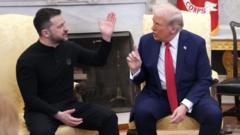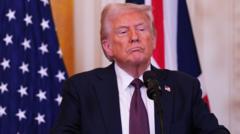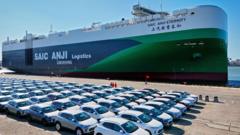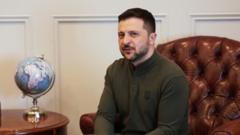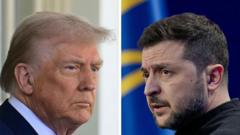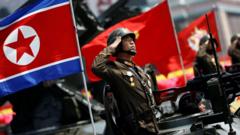With the US ruling out deploying forces to Ukraine, European nations face the daunting task of bolstering their military capabilities to stand against Russian aggression. Senior military officials express skepticism about European readiness, highlighting the need for additional defense spending and coordination.
Europe's Military Readiness: Can It Stand Alone Against Russia?
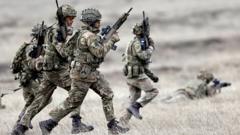
Europe's Military Readiness: Can It Stand Alone Against Russia?
The question arises whether Europe can effectively deter Russia in Ukraine without the backing of US military power amidst ongoing tensions.
As Europe grapples with rising tensions in Ukraine, a critical question looms: can European nations effectively deter Russia without relying on US military intervention? Recent statements from former US President Donald Trump indicate a belief in the capability of British forces, yet concern persists over the overall readiness of European military units.
Currently, the US has dismissed the idea of a NATO presence in Ukraine, focusing instead on economic investments. Trump's remarks suggest that European forces could be sufficient but also raise doubts about their ability to confront Russia directly.
The resources available to Europe appear insufficient. As Russia's military expenditure surpasses that of all European nations combined and continues to rise significantly, critiques of the British Army's diminished size linger. The UK recently committed to increasing its defense budget but is still expected to fall short of the necessary troop levels to field a meaningful deterrence, as suggested by Ukrainian President Volodymyr Zelensky.
Most analysts agree that the combined strength of European armies cannot match Russian forces without American support. While discussions have emerged about deploying a limited European force to reassure Ukraine, the actual number falls far short of what might be needed—30,000 troops compared to the 100-200,000 suggested by Ukraine.
Furthermore, European nations face challenges in conducting extensive military operations on their own. Historical context from NATO's past actions illustrates their dependency on US support for logistics, air supply, and intelligence, further questioning the feasibility of Europe's independent military response.
Recent talks involving British leaders with US officials reflect a lack of clarity on security guarantees. UK Prime Minister Sir Keir Starmer met with Trump but left with no assurances of a US military commitment if violence escalates. While a few nations like France stand ready to contribute to a potential European force, many others express hesitance without US backing, particularly those in Southern Europe.
As Europe embarks on a crucial summit to address defense strategies and capabilities, the effectiveness of its military readiness to counter Russian aggression remains in serious question. With leaders set to meet this weekend, the outcome may determine Europe’s unified resolve in facing the ongoing threat posed by Russia.

